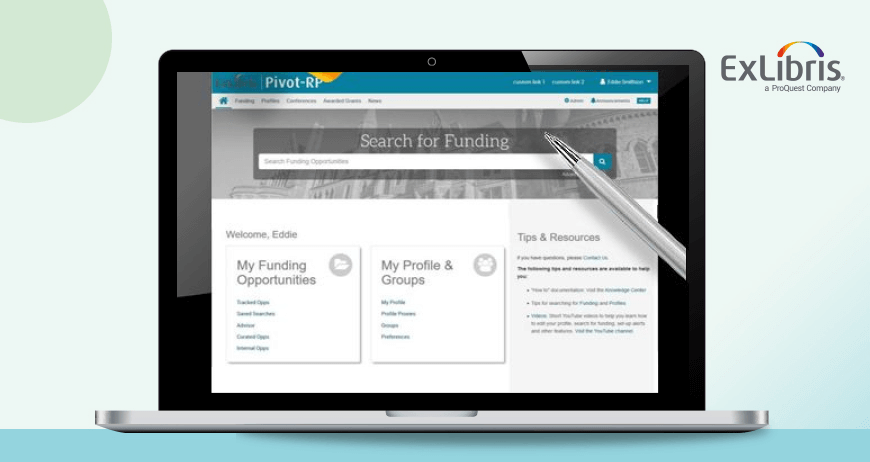Hundreds of thousands of searches for research funding opportunities are conducted within Pivot-RP each year and it is always interesting to see what scholars are searching for. In a blog post from 2019 we revealed the terms most often used in funding searches during an 18-month period. Using the same approach, we expanded our review to include results from the past three years, 2018-2020, in order to learn how search terms change – or don’t – over a longer period of time.
A simple search is the first step for most researchers using Pivot-RP. Any keyword entered in one of the Pivot-RP search boxes reveals funding opportunities related to the given term in some way.
What’s changed?
The expanded examination of Pivot-RP search data was intended to reveal what has changed over time, including at the discipline level and keyword search frequency.
To that end, we asked ourselves two main questions based on the collected data:
- Has the percentage of searches in a given discipline changed that much over time or since the last time we reported?
The short answer is: No, not really. But that is the nature of funding opportunities in general.
- Do current events affect the keywords researchers use when looking for funding opportunities?
This time, the short answer is: Yes.
For more detail, let’s dive into the data.
Top keyword searches
According to the collected data, over 390,000 keywords were used in over 680,000 Pivot-RP search events.
The top 10% of searches included variations on 117 keywords. In the chart below, we’ve grouped the top 10% keyword searches according to the primary disciplines represented on the Pivot-RP funding wheel. This conceptual division makes it easier to calculate the amount of funding available at the top discipline level.
| Top Discipline Categories | Percentage of top 10% of searches within each discipline category | Estimated US dollar value of funding opportunities in each category
|
| Health & Medicine | 40% | $24 Billion + |
| Education | 23% | $12 Billion + |
| Social Sciences | 13% | $25 Billion + |
| Sustainability | 10% | $4 Billion + |
| Arts & Humanities | 4% | $9 Billion + |
| Area Studies – International | 3% | $5 Billion + |
| Natural & Physical Sciences, Math & Technology | 2% | $40 Billion + |
| Engineering | 2% | $27 Billion + |
| Agriculture | 1% | $9 Billion + |
| Business | 1% | $9 Billion + |
How keywords have changed
The above results represent the top 10% of collected data, detailing what percentage of keyword searches are associated with each of the leading cited disciplines. It is interesting to see what search keywords have increased or decreased in popularity over time. While we might not be able to answer exactly why such changes occurred, we can speculate in some cases. For example:
Covid-19 – When looking at Health & Medicine, it’s not surprising to see Covid-related searches at the top, starting at the beginning of 2020. In this grouping of keywords, we included the search term “epidemiology”. There were over 1,800 such searches, with a 1,000% increase in the first three quarters of 2020 compared to all previous quarters.
Looking at the data from another angle, we see:
- If we remove the word “epidemiology” from the list, Covid-related searches represent 98% in the first three quarters of 2020.
- Epidemiology has been consistently searched for throughout the years, as it is a cornerstone in public health.
- Another take-away from the data is that the term “Covid” did not show up in searches prior to 2020. Since then, its frequency has been growing.
Mental Health – This is a very broad search term, but we see a drop of 60% in searches during the first three quarters of 2020 compared to prior quarters. Even search terms related to mental health – like “trauma”, “suicide” and “substance abuse” – have similarly decreased in frequency over the first three months of 2020 compared to past results.
What becomes very obvious from the collected data is the impact of current events and global trends on both the focus of academic research and the funding opportunities available. With proper data analysis, institutions and funders can get better insight into the type of funding researchers are searching for most intensively. Institutions that can provide scholars with access to the funds they need increase their competitiveness and reputation, as their researchers are more likely to make a greater contribution to the body of academic knowledge.
You never know, there could be funding for that!







